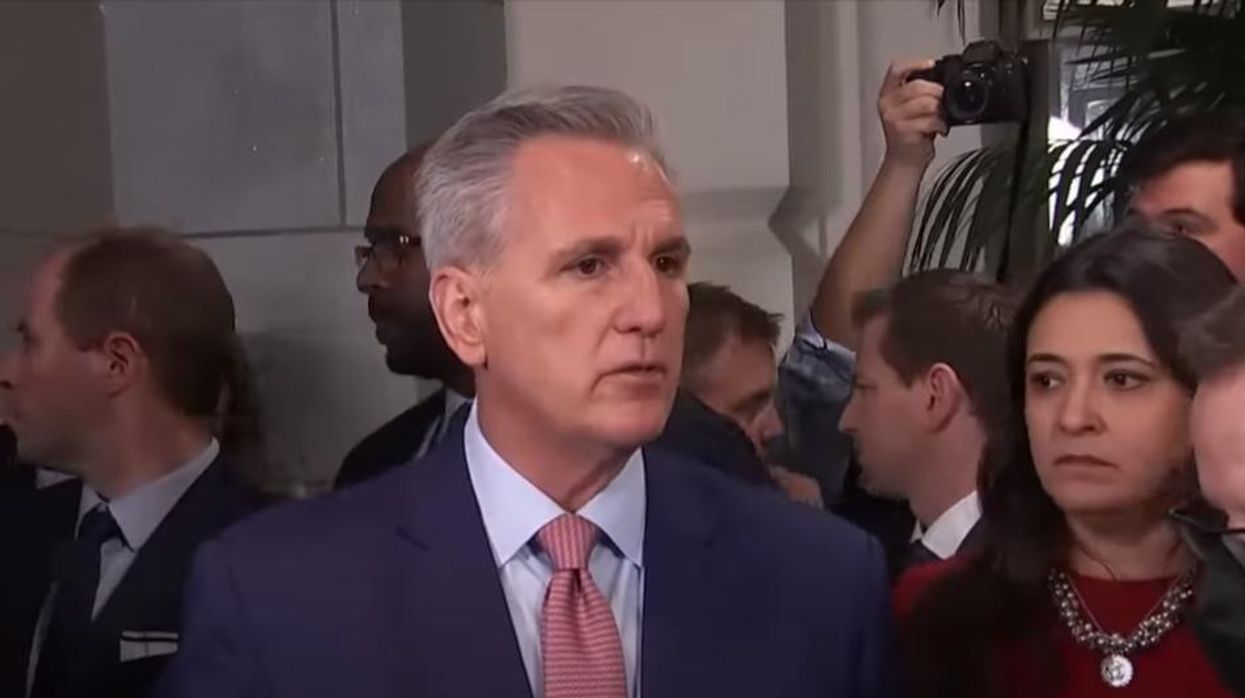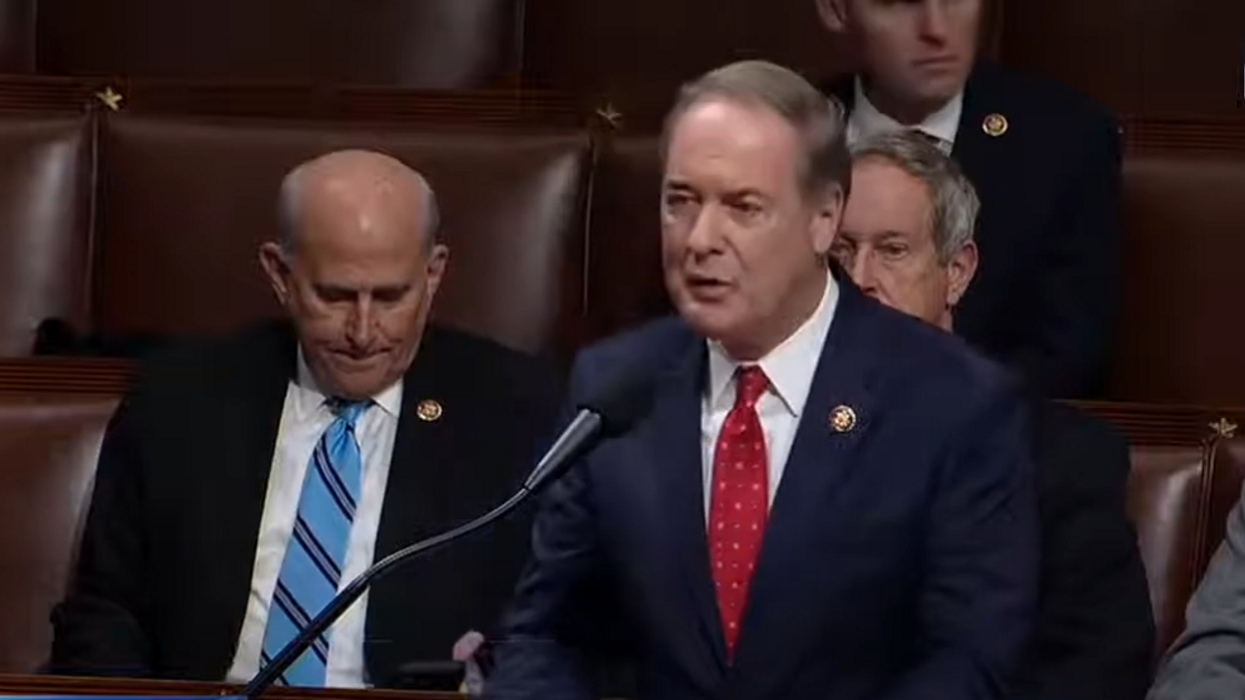McCarthy Blames Democrats For Debt, While GOP Policies Increase It

Speaker Kevin McCarthy
House Speaker Kevin McCarthy blamed the $31 trillion national debt for recent inflation in an address on Monday and demanded "sensible, responsible solutions to our growing national debt," which he called "the greatest threat to our future."
"When debt is too high, inflation is the result. That's where we are today," McCarthy said, according to prepared remarks posted on his official website.
But while McCarthy has previously demanded unspecified spending cuts before he allows the House to take any action to raise the debt limit and prevent a catastrophic default on the national debt, House Republicans are also proposing legislation that would add trillions of dollars to the annual budget deficit.
McCarthy stated on Monday: "If we continue down this path, in the next 10 years, we will spend over $8 trillion just on interest. That's more than the entire federal budget this year. By a lot. That is neither affordable nor sustainable."
McCarthy blamed the spending exclusively on congressional Democrats, who he said "spent your hard-earned tax dollars like those dollars were imaginary." He made no acknowledgment of the fact that about a quarter of the total national debt, nearly $8 trillion, was added while Republican President Donald Trump was in the White House, with the full support of congressional Republicans.
A huge portion of the deficit was the result of Trump's Tax Cuts and Jobs Act, enacted in 2017, which slashed tax rates for rich people and corporations while reducing revenue by what the Congressional Budget Estimated will be $1.9 trillion over a decade.
More was added to the deficit through a series of bipartisan COVID-19 relief packages. McCarthy voted for each of them.
McCarthy said in his remarks: "I think I speak for most Americans when I say, it's time for Washington to change its behavior and act like adults. … We will curb wasteful Washington spending to reduce inflation and return our government to fiscal sanity. We will preserve our ability to defend this nation against threats from abroad. Cuts to Medicare and Social Security are off the table. Defaulting on our debt is not an option."
McCarthy and his caucus in the House have introduced a number of bills that would increase the gap between the nation's annual revenue and its annual spending.
After House Republicans gained the majority in January, their first legislative priority was passing the Family and Small Business Taxpayer Protection Act, a bill which would repeal provisions in last year's Inflation Reduction Act that granted additional funding to the Internal Revenue Service, including for enforcement activities against individuals and companies that evade payment of taxes they owe.
The nonpartisan Congressional Budget Office estimated that the bill would cost the government more than $185 billion in lost revenue over 10 years. McCarthy and all 220 other Republicans present voted for the bill, which passed along party lines. It will likely not be taken up by the Democratic-controlled Senate.
Republicans on the House Ways and Means Committee say on their official website that they will attempt to make the individual tax cuts included in the Tax Cuts and Jobs Act permanent rather than let them expire in 2025 as mandated. An analysis by the Tax Policy Center last November found that such a move would add over $3 trillion to the budget deficit over a decade and that 60 percent of the tax savings would go to the wealthiest 20 percent of American families. McCarthy voted for a 2018 bill to make these tax cuts permanent, but it did not pass out of committee in the Senate.
Rep. Robert Latta (R-OH) filed a bill on January 12 to permanently repeal the federal estate tax, which applies only to those who inherit estates worth more than $12.92 million. According to the IRS, fewer than 6,500 households were impacted by the estate tax in 2019 nationally, but it brought in more than $13 billion in revenue that year.
A day later, Rep. Vern Buchanan (R-FL) filed the American Innovation Act, seeking to expand tax deductions for start-up expenses for businesses. While the Congressional Budget Office has not yet reviewed the bill, it found his 2018 version of it would have reduced revenues by about $5.4 billion over 10 years.
On February 2, Rep. Ashley Hinson (R-IA) and several GOP colleagues reintroduced the Repealing Illegal Freedom and Liberty Excises (RIFLE) Act, which would repeal a $200 excise tax on transfers of some firearms and silencers. This tax cut for gun buyers would result in a loss of tens of millions of dollars in revenue annually.
A spokesperson for McCarthy did not immediately respond to an American Independent Foundation inquiry about whether he personally supports these bills.
President Joe Biden has called on Congress to increase the debt limit without conditions.
Reprinted with permission from American Independent.


